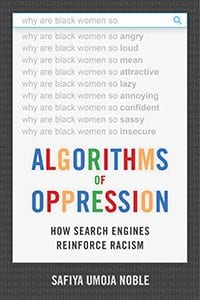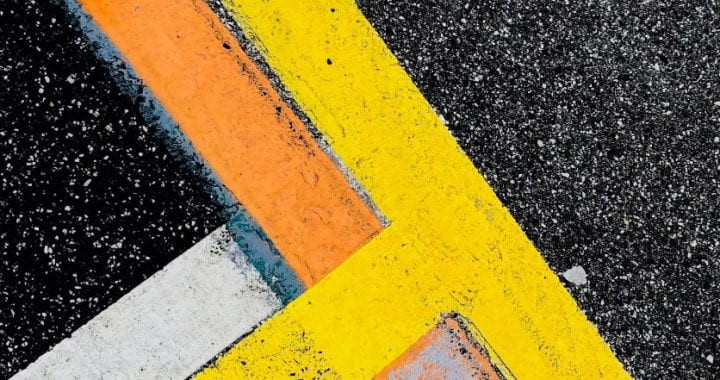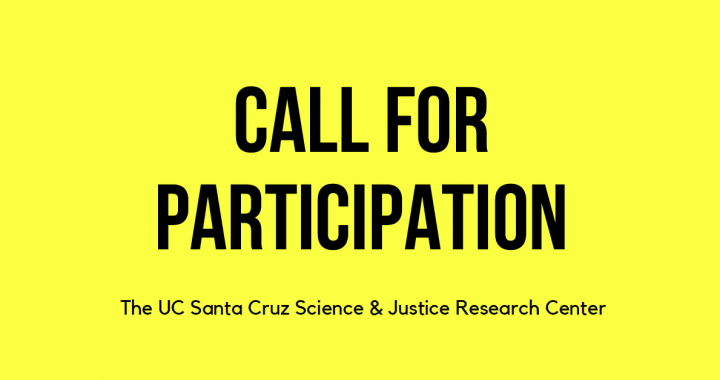In the post-WWII, post-fascist, post-nationalist moment, a dominant story developed both within and outside the academy that ‘race’ had no meaning or value for understanding human biology. Despite the so-called end of ‘race’ over the last several decades, scholars continued to track the subtle manner in which racial thinking continued under the cover of culture, religion, population and ethnicity. Today, however we see an overt return to race, a return facilitated and mediated by novel forms of science and technology: genomics; machine learning; algorithmically driven media platforms. From David Reich’s New York Times op-ed arguing that there is a genetic basis to ‘race,’ to renewed interest in Charles Murray and The Bell Curve, several prominent public intellectuals have sought to buck what they perceive as the ‘politically correct dogma’ of race as a social construction. At the same time, members of the alt-right are embracing genomics research to support their claims for a ‘white ethnostate.’ ‘Theorizing Race after Race’ seeks to develop a framework for grappling with these reconfigurations of race after the supposedly ‘post-racial’ moment. Our goal is to understand how knowledge of the genome and ideas of human difference circulate, taking on different meanings across diverse historical-geographical contests.
On March 12th 2019, Faculty and students of SJRC’s Theorizing Race After Race group, and Jenny Reardon’s graduate seminar Sociology 260: Culture, Knowledge, Power discussed the overt return to race facilitated and mediated by novel forms of science and technology: genomics; machine learning; algorithmically driven media platforms with Dr. Safiya Umoja Noble.
On March 12th 2019, at the Kresge Town Hall, Dr. Safiya Umoja Noble discussed her new book, Algorithms of Oppression, and the impact of marginalization and misrepresentation in commercial information platforms like Google search, as well as the implications for public information needs.
On January 19th 2020, SJRC Founding Director Jenny Reardon and Herman Gray speak about race in America as interviewed by Chris Benner, Director of the Institute for Social Transformation, on KSQD.
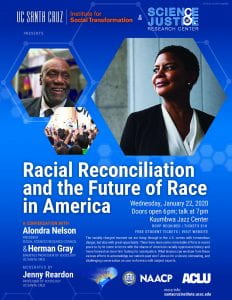 On January 22nd 2020, the community joined us for a vibrant, stimulating, and challenging conversation on Racial Reconciliation and the Future of Race in America with Alondra Nelson (President, Social Sciences Research Council) and Herman Gray (Emeritus Professor of Sociology, UC Santa Cruz) as moderated by Jenny Reardon (Professor of Sociology and Director of the Science & Justice Research Center, UC Santa Cruz).
On January 22nd 2020, the community joined us for a vibrant, stimulating, and challenging conversation on Racial Reconciliation and the Future of Race in America with Alondra Nelson (President, Social Sciences Research Council) and Herman Gray (Emeritus Professor of Sociology, UC Santa Cruz) as moderated by Jenny Reardon (Professor of Sociology and Director of the Science & Justice Research Center, UC Santa Cruz).
On November 20th 2020, the first installment of a series of Dialogues on COVID-19 and Racism of the SJRC’s Theorizing Race After Race working group launched on the UCHRI Foundry website! Check out Black Geographies of Quarantine: A Dialogue with Brandi Summers, Camilla Hawthorne, and Theresa Hice Fromille.
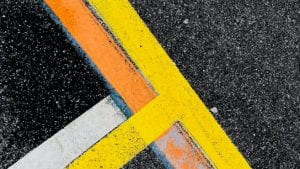 On September 22nd 2021, the second installment of a series of Dialogues on COVID-19 and Racism of the SJRC’s Theorizing Race After Race working group launched on the UCHRI Foundry website! Check out Metrics, Enumeration, and the Politics of Knowledge in Estimating Racial Health Disparities in the COVID-19 Pandemic: A Dialogue with Alexis Madrigal, Co-Founder of The Atlantic’s COVID Tracking Project. In this dialogue, SJRC affiliate faculty and Assistant Professor of Sociology Jaimie Morse, with Film & Digital Media graduate student Dorothy Santos, and UCSC undergraduate student alum Aitanna Parker (as part of the TRAR Collective) are in dialogue with Alexis Madrigal, journalist and co-founder of The Atlantic’s COVID Tracking Project that operated from April 2020 to March 2021. The Atlantic is a major media outlet that produced alternative statistics on COVID infections, hospitalizations, and deaths during the first year of the pandemic, acting as a watchdog on the federal government’s data and reporting. The Atlantic was among the first media outlets to report racial health disparities through its COVID Racial Data Tracker before the CDC released data by race. In this dialogue with Alexis Madrigal, we explore the politics of knowledge production and how data can advance racial justice. What follows is an edited, condensed transcript of the dialogue.
On September 22nd 2021, the second installment of a series of Dialogues on COVID-19 and Racism of the SJRC’s Theorizing Race After Race working group launched on the UCHRI Foundry website! Check out Metrics, Enumeration, and the Politics of Knowledge in Estimating Racial Health Disparities in the COVID-19 Pandemic: A Dialogue with Alexis Madrigal, Co-Founder of The Atlantic’s COVID Tracking Project. In this dialogue, SJRC affiliate faculty and Assistant Professor of Sociology Jaimie Morse, with Film & Digital Media graduate student Dorothy Santos, and UCSC undergraduate student alum Aitanna Parker (as part of the TRAR Collective) are in dialogue with Alexis Madrigal, journalist and co-founder of The Atlantic’s COVID Tracking Project that operated from April 2020 to March 2021. The Atlantic is a major media outlet that produced alternative statistics on COVID infections, hospitalizations, and deaths during the first year of the pandemic, acting as a watchdog on the federal government’s data and reporting. The Atlantic was among the first media outlets to report racial health disparities through its COVID Racial Data Tracker before the CDC released data by race. In this dialogue with Alexis Madrigal, we explore the politics of knowledge production and how data can advance racial justice. What follows is an edited, condensed transcript of the dialogue.
 On March 9th, 2022, the third installment of the series, Dialogues on COVID-19 and Racism, by UC Santa Cruz Science & Justice Research Center’s Theorizing Race after Race (TRAR) working group launched on the UCHRI Foundry website! In this third dialogue, Race, Contagion, and the Nation,1 which took place during August 2021, graduate students Lucia Vitale and Dennis Browe, and undergraduate Sophia Parizadeh, hosted a Zoom video panel with four scholars from around the Americas discussing how COVID has revivified or changed the existing debates about race and racism in different trans/national contexts. The panel was structured around six main questions, which Sophia asked and are marked in bold. Find more information about relevant contexts that shaped the topics discussed during the full dialogue.
On March 9th, 2022, the third installment of the series, Dialogues on COVID-19 and Racism, by UC Santa Cruz Science & Justice Research Center’s Theorizing Race after Race (TRAR) working group launched on the UCHRI Foundry website! In this third dialogue, Race, Contagion, and the Nation,1 which took place during August 2021, graduate students Lucia Vitale and Dennis Browe, and undergraduate Sophia Parizadeh, hosted a Zoom video panel with four scholars from around the Americas discussing how COVID has revivified or changed the existing debates about race and racism in different trans/national contexts. The panel was structured around six main questions, which Sophia asked and are marked in bold. Find more information about relevant contexts that shaped the topics discussed during the full dialogue.
These are part of an ongoing effort to develop frameworks for grappling with race and racism in this purportedly “post-racial” era. The COVID-19 pandemic provides particularly striking examples of the ways in which a post-racial moment has not yet come to pass, undermining a teleology already disrupted by the 2016 U.S. presidential election. While the pandemic is replaying old narratives in new guises, we contend that it also affords a real-time global critique of narratives of race and science. Dynamics of COVID-19, and narratives about it, differ across national, state, city, and zip code lines. Placing these differing narratives in conversation, we suggest, disrupts 20th- and 21st-century epistemes that have clung strongly to narratives of race and pathology, race and biology. To make these differences manifest, and to develop a critique that attunes us to the racial justice questions of this moment, in this forum TRAR is curating a series of dialogues between scholars working in different geographic and political contexts about different themes at the intersection of COVID-19 and racism—from the politics of numbers and race-based data collection, to questions of race, space, surveillance, and quarantine.
Help us realize more dialogues! Consider donating to the SJRC to support our undergraduate and graduate student researchers.
Contact
Camilla Hawthorne (Sociology), Jenny Reardon (Sociology)
Graduate Researchers
Dennis Browe is a PhD student in the Department of Sociology at UC Santa Cruz. Dennis’ work lies at the intersections of medical sociology, science & technology studies (STS), public health, sexuality and gender studies, and feminist theory.
Theresa Hice Fromille is pursuing her PhD in Sociology at UC Santa Cruz, with designated emphases in Critical Race and Ethnic Studies and Feminist Studies. Her dissertation project draws insights from Black Geographies and youth studies to investigate how Black youth from the United States construct their racial identities during international travel.
Dorothy R. Santos is a PhD student in the Department of Film & Digital Media at UC Santa Cruz. Dorothy is a Filipina American writer, artist, and educator whose academic and research interests include feminist media histories, critical medical anthropology, technology, race, and ethics.
Lucia Vitale is a PhD student in the UC Santa Cruz Politics department and interdisciplinary global health scholar whose work explores the right to healthcare and fragmented primary health systems in Latin America. She uses citizenship to frame inclusion and exclusion practices occurring at both the transnational scale in global health policy, and at the national scale in social policy. You can read her most recent publication here: “COVID’s Co-Pathogenisis,” and find her on Twitter here: @luciavitale
Undergraduate Researchers
Joshua Harjes (Biology, Critical Race and Ethnic Studies)
Sophia Parizadeh is a College Ten affiliate, first-year undergraduate student majoring in Politics. She is interested in understanding systemic racial inequality and how it has been magnified within the pandemic. She hopes to shed light on other social justice issues and work towards forming solutions to today’s problems.
Alum Researchers
Aitanna Rene Parker, a Kresge affiliate, is a recent graduate of UC Santa Cruz, with a BA in Critical Race and Ethnic Studies and a BS in Technology and Information Management. She plans to use her technical abilities for social good. Aitanna is currently working with the Science & Justice Research Center, looking at datasets to understand how Covid is negatively impacting racialized populations in the United States. She wants to continue this work in graduate school.

